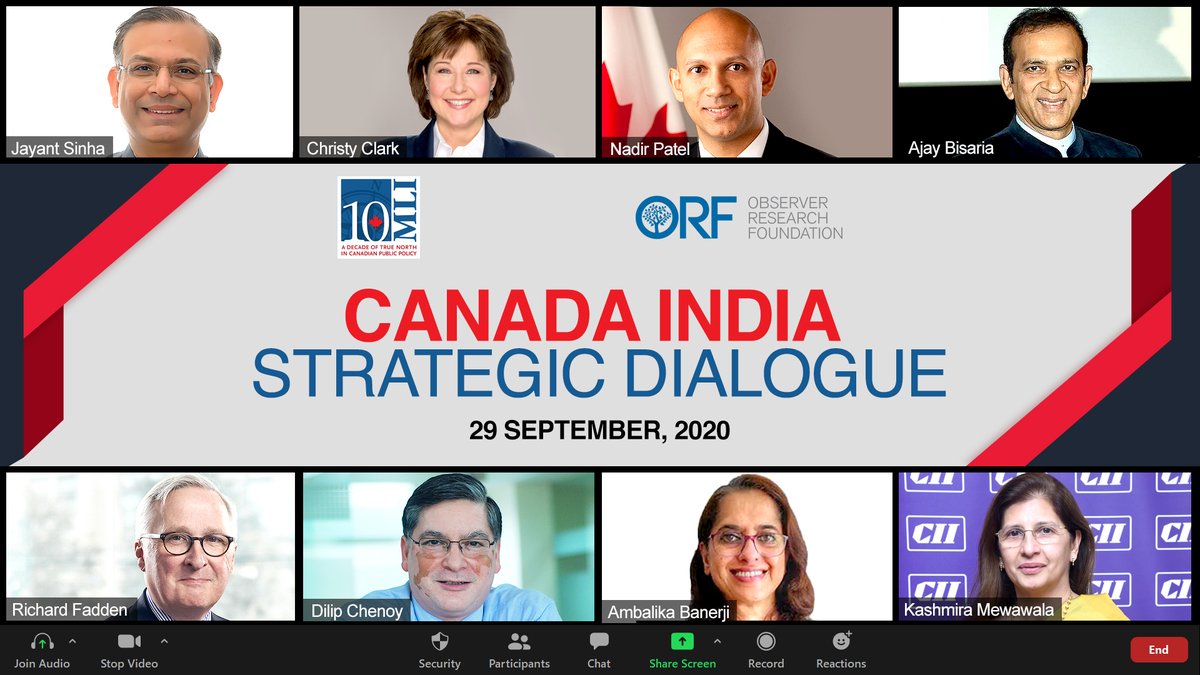In September, MLI and ORF organised their first Canada India Strategic Forum, a joint initiative supported by the Canadian and Indian governments: https://bit.ly/38yTaMX
The discussion, held under the Chatham House Rule, was chaired by senior political figures from the two countries and benefited from participation by the two countries High Commissioners.
The Forum identified four areas for deepening the bilateral relationship: economic cooperation (especially investment), energy, technology, and security.
Economic relations between Canada and India have been booming prior to the coronavirus pandemic, and offer great promise. This includes $70 billion of Canadian portfolio investment and FDI to India, and a 25% increase in trade over 5 years.
However, some areas of economic cooperation require work. A bilateral investment treaty will help with the quality of investment into India. Investment also has to go beyond infrastructure, to areas like agriculture and education.
Second, energy cooperation – especially on clean and renewable energy, such as solar and nuclear – can today complement ongoing collaboration on LNG, oil, and traditional fossil fuels.
Third, people-to-people links are also an area of strength, with a 1.6 million Indian diaspora and Canada and 700,000 Indian passport holders.
These people-to-people links offer opportunities for technology and innovation, including on vaccine development and healthcare in the context of the COVID-19 pandemic. Both sides have to better understand how to leverage educational exchanges.
A fourth area is security cooperation, including convergences on a free, open, and inclusive Indo-Pacific and on counter-terrorism cooperation.
While CT cooperation has overcome hurdles, a deep and frank bilateral conversation on developments in Asia and the #IndoPacific is necessary. #Cybersecurity – specifically cyber crime - is an emerging area of promise.
Overall, India can and should move beyond perceiving of Canada as an adjunct to its U.S. policy, just as Canada can and should move beyond perceiving of India as a subset of its Asia policy.
Both countries are also active participants at multilateral organizations, at a time when the U.S., China, Russia, Europe, and others are advancing their diverse agendas. Additionally, both countries can still find ways to improve subnational government exchanges.

 Read on Twitter
Read on Twitter


